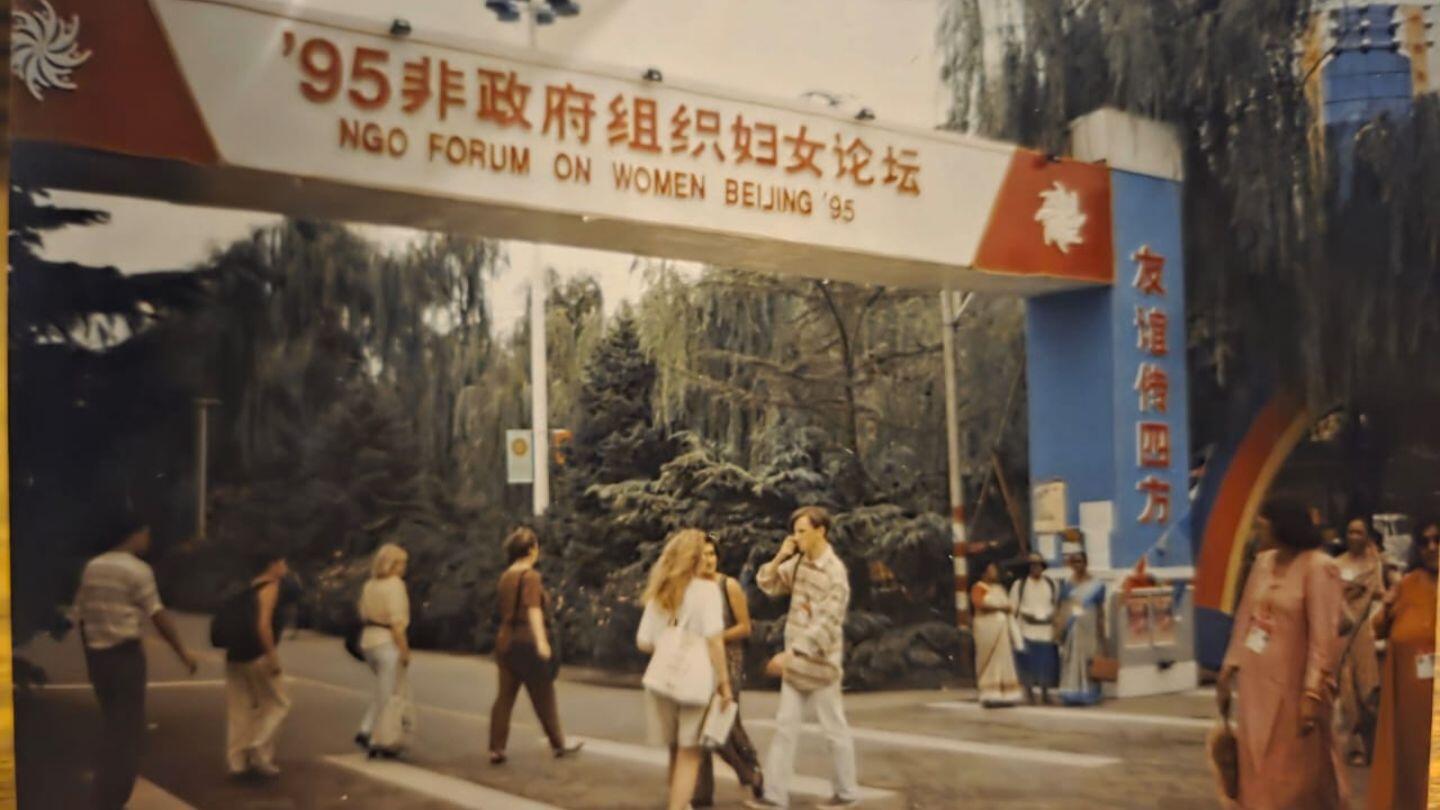Reflections: Voices from Beijing – Sri Lanka Series
"Never give up."
These are the powerful words that encapsulate the decades-long activism of Shafinaz Hassendeen, a trailblazer in women’s rights and gender equality in Sri Lanka. From her early days as a university student to becoming the Head of Programmes at the ILO in Sri Lanka and Vietnam, and a former Senior Programme Officer at the Royal Norwegian Embassy, her life’s work has been rooted in justice and empowerment.
Shafinaz's journey into gender and development began long before the historic 1995 Beijing World Conference on Women. During her tenure at NORAD, she supported pioneering initiatives such as the establishment of the Women’s Bureau (1978) and the Ministry of Women’s Affairs, contributing to significant milestones like the Women’s Charter (1993). Her efforts were not limited to policy work; she also championed research and advocacy on land rights, domestic violence, and the rights of women in the plantation sector.
As a board member of the Muslim Women’s Research and Action Forum (MWRAF), founded in 1978, Shafinaz joined a collective voice demanding reforms to the Muslim Marriage and Divorce Act (MMDA) of 1951.
"We pioneered advocacy by Muslim women for equality and justice,"
she reflects, highlighting decades of work challenging entrenched gender discrimination within her community.
The Beijing Conference itself was unforgettable. Shafinaz recalls,
"The flight from Thailand was full of energy, with women singing 'We Shall Overcome'. But once in Beijing, we were housed in dusty, unfinished buildings. Despite the challenges, the spirit of solidarity was unparalleled."
The conference became a turning point, infusing her and thousands of others with renewed purpose.
In 1998, she joined the International Labour Organisation (ILO), where her advocacy continued on workplace equality, sexual harassment, and women’s employment. Even in retirement, her dedication persists. As a member of the University Grants Commission's first Standing Committee on Women (2015–2019), and through ongoing voluntary work with MWRAF and other NGOs, Shafinaz continues to influence change.
Despite the tireless activism, she remains candid about the slow pace of progress:
"Have we made a difference? Despite some progress, women’s lives haven’t changed much. Outdated norms and systemic inequalities remain. The female labour force participation is now just 29.9%, lower than when I retired."
Yet, she also acknowledges key achievements: the Prevention of Domestic Violence Act (2005), the Women’s Empowerment Act (2024) which established the National Women’s Commission, amendments to discriminatory land laws, and the launch of the National Action Plan to address Sexual and Gender-based Violence (2024–2028).
But she warns,
"Passing laws isn’t enough. Implementation is key. At a recent workshop in Ampara, only 7 out of 22 participants had even heard of the PDVA."
For laws to truly empower, awareness and women’s voices must guide their formation and rollout.
Shafinaz believes that the ultimate challenge lies in shifting societal mindsets:
"We must move beyond archaic norms that prioritise patriarchal control over women’s autonomy. It’s not easy, but we have to keep trying."
To younger feminists and activists, her message is unwavering:
"Never give up. MWRAF has fought for MMDA reform for over four decades. Today, young Muslim women have joined us. That gives me hope. Hopefully, we will see justice and equality for all Sri Lankan women in our lifetime."


